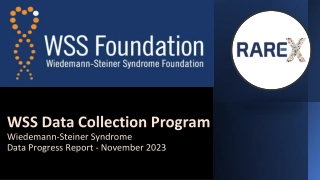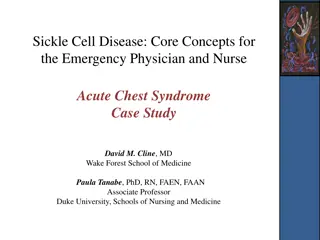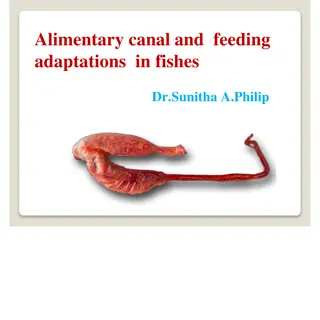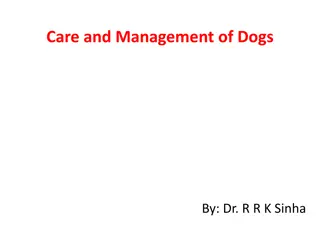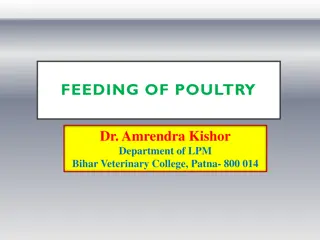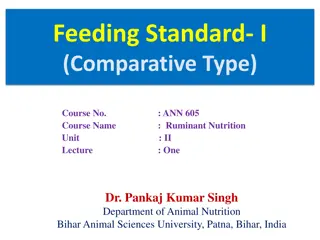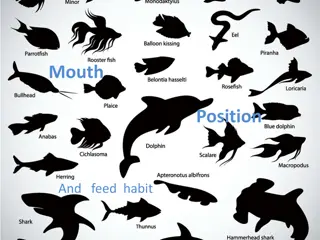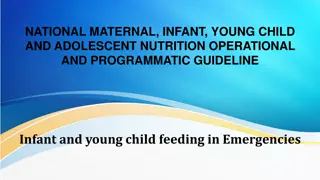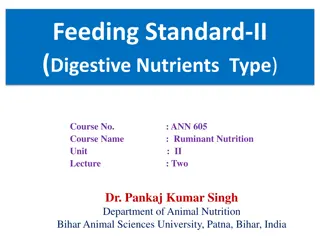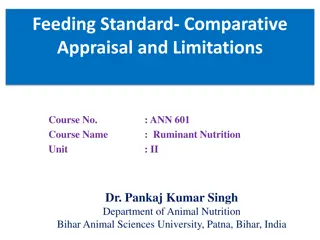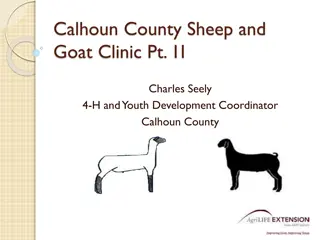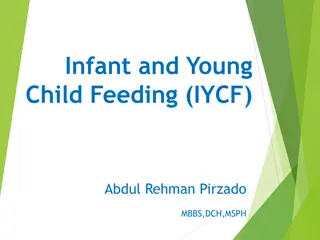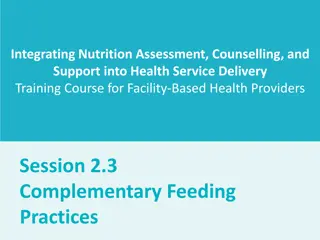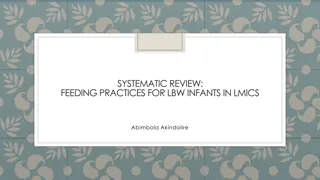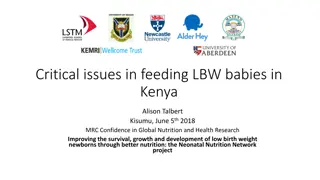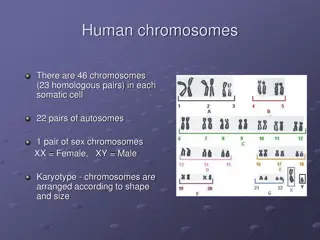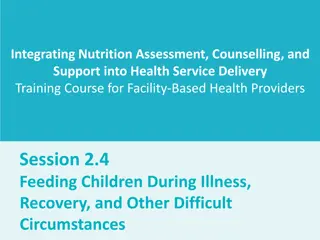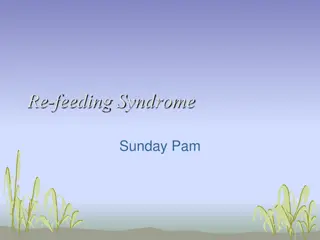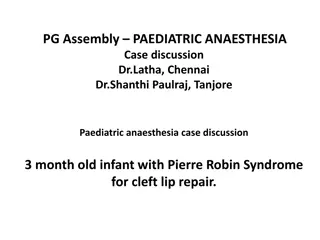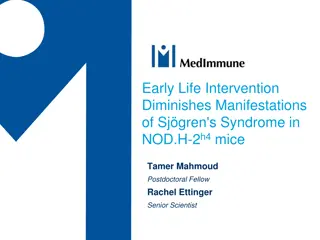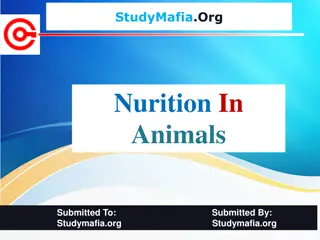Understanding Angelman Syndrome - Enhancing Lives Through Awareness
Angelman syndrome is a rare genetic condition impacting physical milestones and learning abilities. It affects around 1 in 15,000 individuals globally, with symptoms including speech difficulties, disrupted sleep, and seizures. Though there is no cure, increased awareness and research provide hope f
3 views • 20 slides
❤[PDF]⚡ Zee Zee Does It Anyway!: A Story about down Syndrome and Determination
\"COPY LINK HERE ; https:\/\/uyahsegoro.blogspot.com\/?book=B0BGNN7QZ6\n\n[READ DOWNLOAD] Zee Zee Does It Anyway!: A Story about down Syndrome and Determination | Zee Zee Does It Anyway is a Mom’ Choice Awards® Gold Recipient! PLUSReaders' Favorite gave this book a 5-star review!Have you e
1 views • 2 slides
Wiedemann-Steiner Syndrome Data Analysis and Progress Report - November 2023
This report provides insights into the enrollment, survey completion, KMT2A mutation types, reported issues, completion rates of relevant surveys, and symptoms in individuals diagnosed with Wiedemann-Steiner Syndrome. With a global perspective, the data highlights various domains of concern, offerin
1 views • 36 slides
Understanding Wolfram Syndrome: Symptoms and Implications
Wolfram Syndrome, also known as DIDMOAD, is a rare genetic disorder affecting about 1 in 160,000-770,000 people worldwide. It is characterized by the presence of Diabetes Insipidus, Diabetes Mellitus, Optic Atrophy, and Deafness. The primary genetic mutation in the WFS1 gene leads to various symptom
0 views • 22 slides
Managing Acute Chest Syndrome in Sickle Cell Disease
A case study of a 31-year-old male with sickle cell disease presenting in the emergency department with a pain crisis. The patient has a history of avascular necrosis, priapism, NSTEMI, cholecystectomy, and previous acute chest syndrome. Explore the patient's symptoms, past medical history, and reco
7 views • 19 slides
Famous Quotes on Imposter Syndrome - Can You Guess the Authors?
Discover famous quotes on imposter syndrome, try to guess the authors behind them, and learn how even well-known figures like Albert Einstein and Sonia Sotomayor have experienced feelings of inadequacy and self-doubt. Explore the prevalence of imposter syndrome and share your own experiences to crea
1 views • 7 slides
Alimentary Canal and Feeding Adaptations in Fishes by Dr. Sunitha A. Philip
The presentation discusses the alimentary canal and feeding adaptations in fishes, covering topics like the different regions of the gut, mouth types in fish, adaptation of teeth for specific diets, and the roles of the buccal cavity, pharynx, and gill rakers. It further explores how gill rakers var
0 views • 24 slides
Overview of Hands and Upper Extremity Conditions
This informative content covers various hand and upper extremity conditions including nerve innervation, deformities, splints, and syndromes such as carpal tunnel syndrome and cubital tunnel syndrome. It discusses key nerves like the ulnar, median, and radial, their functions, associated deformities
1 views • 40 slides
Comprehensive Guide on Dog Care and Management
Learn about housing, feeding, and dimensions of kennels for dogs, along with tips on appropriate feeding that plays a crucial role in keeping dogs healthy and fit. Dr. R.R. K. Sinha provides valuable insights on the care and management of dogs, emphasizing the importance of suitable housing, feeding
0 views • 42 slides
Essential Guidelines for Feeding Poultry for Optimal Production
Feeding poultry is a crucial aspect of poultry production, accounting for a significant portion of total expenses. Quality feed and proper feeding methods are key to maximizing efficiency. Understanding the nutritional needs of poultry, including water, carbohydrates, proteins, fats, vitamins, and m
1 views • 18 slides
Understanding Feeding Standards and Their Objectives in Livestock Nutrition
Feeding standards provide tables indicating nutrient quantities necessary for livestock based on various physiological functions like growth, maintenance, lactation, and more. Objectives include guiding farmers in selecting balanced rations and classifying functions for individual animal needs. Glos
0 views • 13 slides
Neuroleptic Malignant Syndrome and Serotonin Syndrome Overview
This educational material provides an in-depth understanding of Neuroleptic Malignant Syndrome (NMS) and Serotonin Syndrome (SS) including their background, pathophysiology, clinical characteristics, differential diagnosis, risk factors, and treatment approaches. It also explores the historical back
3 views • 53 slides
Understanding Fish Mouth Positions and Feeding Habits
The position of a fish's mouth reveals valuable information about its feeding habits, behavior, and lifestyle. Fish mouths can be categorized as superior (upward-facing), terminal (forward-facing), or inferior (downward-facing), each adapted for specific feeding strategies. Superior mouths are ideal
5 views • 10 slides
Infant and Young Child Feeding in Emergencies: Operational Guidelines
Infant and Young Child Feeding in Emergencies (IYCF-E) focuses on protecting and supporting safe feeding practices for infants and young children during all types of emergencies to reduce mortality and morbidity risks. Key actions include developing policies, training staff, coordinating operations,
4 views • 10 slides
Understanding Wilms Tumor in WAGR Syndrome
WAGR syndrome is a rare genetic condition associated with Wilms Tumor, aniridia, and developmental delays. Wilms Tumor is a form of kidney cancer mostly affecting children and is linked to genetic disorders like WAGR syndrome. The risk of Wilms Tumor is higher in children with WAGR syndrome, with po
1 views • 14 slides
Motor Abilities in Williams Syndrome and Their Importance
Motor abilities play a crucial role in the developmental journey of individuals with Williams Syndrome. From simple reflex movements to fine and gross motor skills, these abilities impact daily living, academic achievements, and overall cognitive and physical growth. Research on motor skills in both
0 views • 20 slides
Evolution of Feeding Standards for Ruminants: A Historical Perspective
The evolution of feeding standards for ruminants dates back to the 19th century, with pioneers like Grouven and Wolff introducing various criteria based on nutrient types and digestibility. Despite initial shortcomings, subsequent refinements by researchers like Professor Kuhn and Atwater have shape
0 views • 18 slides
Understanding Feeding Standards in Ruminant Nutrition
Feeding standards play a crucial role in determining the nutritional needs of animals for optimal health and productivity. They consider factors like productivity, product composition, and physiological conditions, guiding effective nutritional management. Despite their usefulness, feeding standards
0 views • 8 slides
Sheep and Goat Clinic: Feeding, Exercising, and Show Preparation Tips
Topics covered in the Sheep and Goat Clinic include feeding strategies (last 90 days), the importance of balancing fat levels, exercising routines leading up to show day, and final points on feeding and fat management. The images provide valuable insights on feeding athletes, understanding fat level
0 views • 20 slides
Global Impact of Infant and Young Child Feeding (IYCF) Strategies
Global strategies like Infant and Young Child Feeding (IYCF) developed by WHO and UNICEF aim to address the high mortality rates among children under 5 due to malnutrition. The strategies emphasize the importance of appropriate feeding practices during pregnancy, lactation, and early childhood to co
0 views • 14 slides
Integrating Nutrition Assessment and Counselling: Complementary Feeding Practices
This training course focuses on educating facility-based health providers on complementary feeding practices, emphasizing the importance of introducing solid foods along with breastfeeding at 6 months. The session covers topics like nutrition gaps in breast milk, optimal feeding principles, and util
0 views • 48 slides
Feeding Practices for LBW Infants in LMICs
Improved survival rates of small babies highlight the importance of nutrition for LBW infants. Research into feeding practices in LMICs is crucial for promoting growth and development. Studies compare formula milk to human milk, exploring effects on growth, development, morbidity, and mortality. Evi
0 views • 21 slides
Importance of Feeding Infants with Breast Milk and Iron-Fortified Formula
Breast milk and iron-fortified infant formula are recommended for infants to meet their nutritional needs and support optimal development. Breast milk offers numerous health benefits, protecting infants from illnesses and reducing the risk of obesity. Iron-fortified formula is a suitable alternative
0 views • 23 slides
Challenges in Feeding Low Birth Weight Babies in Kenya
Addressing critical issues in feeding low birth weight babies in Kenya, including the lack of accurate birth weight measurements, preterm birth rates, and the risks associated with formula milk feeding. Strategies such as promoting expressed breastmilk and supporting mothers in neonatal units are di
2 views • 15 slides
Guidance for Complementary Feeding in Infants
After 6 months of age, breastfed infants may struggle to meet their nutrient needs from milk alone, necessitating the introduction of complementary foods. Implementing guiding principles can help ensure optimal nutrition and growth, including exclusive breastfeeding for the first 6 months, practicin
0 views • 18 slides
Understanding Chromosomal Abnormalities and Syndromes
Human cells have 22 pairs of autosomes and one pair of sex chromosomes, totaling 46. Karyotypes help diagnose chromosomal abnormalities by aligning chromosomes in size order. Nondisjunction during meiosis can lead to abnormal chromosome numbers in gametes. Disorders like Down Syndrome, XYY Syndrome,
0 views • 30 slides
Understanding Down Syndrome: Causes, Effects, and Characteristics
Down syndrome, also known as Trisomy 21, is a genetic condition caused by the presence of an extra 21st chromosome. Discovered by Dr. John Langdon Down in 1866, this condition affects individuals in various ways, influencing their development and abilities. People with Down syndrome may learn skills
0 views • 10 slides
Understanding Chromosomal Disorders and Syndromes in Humans
Human chromosomes play a crucial role in determining genetic traits and health conditions. An extra copy of chromosome 21 leads to Down syndrome, while conditions like Klinefelter's syndrome, Turner's syndrome, Trisomy 13, 18, and 23 have distinct symptoms and implications. Trisomies result from abn
0 views • 20 slides
Understanding Down Syndrome: Types, Characteristics, and Impacts
Down syndrome is a genetic condition caused by an extra chromosome, typically chromosome 21. This leads to physical and cognitive challenges, with individuals exhibiting unique abilities. The syndrome presents with distinctive physical features, such as flattened face, almond-shaped eyes, and poor m
2 views • 14 slides
Assisting with Oral Feeding, Dysphagia Management, and Enteral Tube Feeding in Healthcare
This content covers essential aspects of assisting with oral feeding for individuals at risk for aspiration, managing dysphagia with specific recommendations and diet progression, and enteral tube feeding procedures and complications. It emphasizes safety, dignity, and independence in feeding practi
3 views • 12 slides
Assisting with Enteral Tube Feeding and Dysphagia Management
This content covers essential information on assisting with oral feeding for patients at risk of aspiration, managing dysphagia, diet progression, and enteral tube feeding procedures. It emphasizes safety, independence, and dignity in feeding practices. The content includes tips for preventing aspir
0 views • 12 slides
Understanding Wernicke-Korsakoff Syndrome: Overview and Clinical Considerations
Wernicke-Korsakoff Syndrome (WKS) comprises Wernicke's Encephalopathy (WE) and Korsakoff Syndrome. WE presents with altered mental status, ocular signs, and ataxia, while Korsakoff Syndrome manifests as amnesia and confabulations. Untreated WE can progress to Korsakoff Syndrome in about 80% of cases
0 views • 52 slides
Integrating Nutrition Assessment and Counseling for Child Feeding During Illness
This training session focuses on the importance of feeding children during illness and recovery, discussing feeding practices and options in difficult circumstances. Participants will learn strategies to encourage children to eat during challenging times, emphasizing the goal of continuing feeding r
0 views • 32 slides
Ration Formulation and Feeding Practices for Dairy Cattle and Buffaloes
This informative article discusses the importance of colostrum feeding, milk feeding to calves, and milk feeding schedules for dairy cattle and buffaloes during various phases. It emphasizes the significance of timely colostrum intake for immunity development and the proper feeding of whole milk or
0 views • 20 slides
Understanding Re-feeding Syndrome: Metabolic Alterations and Pathophysiology
Re-feeding Syndrome (RS) is a critical condition characterized by severe metabolic changes during the repletion of underweight or malnourished individuals. The syndrome's hallmark is severe hypophosphatemia, leading to multisystem complications. This summary delves into the biochemical basis of RS,
0 views • 25 slides
Paediatric Anaesthesia Case Discussion: Challenges of Anaesthetizing an Infant with Pierre Robin Syndrome
Pierre Robin Syndrome (PRS) presents challenges in paediatric anaesthesia, especially in infants undergoing procedures like cleft lip repair. PRS is characterized by micrognathia, glossoptosis, and respiratory distress. Other syndromes associated with cleft lip include Treacher Collins syndrome, Gol
0 views • 56 slides
Understanding Imposter Syndrome: Causes, Effects, and Overcoming Strategies
Imposter Syndrome is characterized by feelings of inadequacy despite evidence of success, chronic self-doubt, and fear of being exposed as a fraud. It affects individuals' work performance, leads to avoidance of additional duties, assigns success to external factors, and can result in burnout. Howev
0 views • 10 slides
Early Life Intervention Diminishes Sjögren's Syndrome Manifestations in Mice
Early life intervention has been shown to reduce the clinical manifestations of Sjögren's syndrome in NOD.H-2h4 mice, which mimic key features of the human autoimmune disease. The syndrome is characterized by salivary gland autoantibodies, ectopic lymphoid follicles, reduced salivary and tear flow,
0 views • 19 slides
Understanding the Role of Gut Hormones in Regulating Feeding Behavior
The syllabus covers relevant anatomy and physiology related to the gastrointestinal tract, emphasizing the regulation of feeding processes. It discusses the role of gut hormones such as ghrelin, obestatin, cholecystokinin, pancreatic polypeptide (PP), and peptide YY (PYY) in controlling appetite, en
0 views • 7 slides
Understanding Nutrition in Animals: Types and Process
Nutrition in animals is vital for their survival, with various categories like herbivores, carnivores, and omnivores. Different modes of nutrition include filter feeding, deposit feeding, bulk feeding, fluid feeding, and suction feeding. The process of nutrition involves ingestion, digestion, absorp
0 views • 14 slides

![❤[PDF]⚡ Zee Zee Does It Anyway!: A Story about down Syndrome and Determination](/thumb/20462/pdf-zee-zee-does-it-anyway-a-story-about-down-syndrome-and-determination.jpg)
